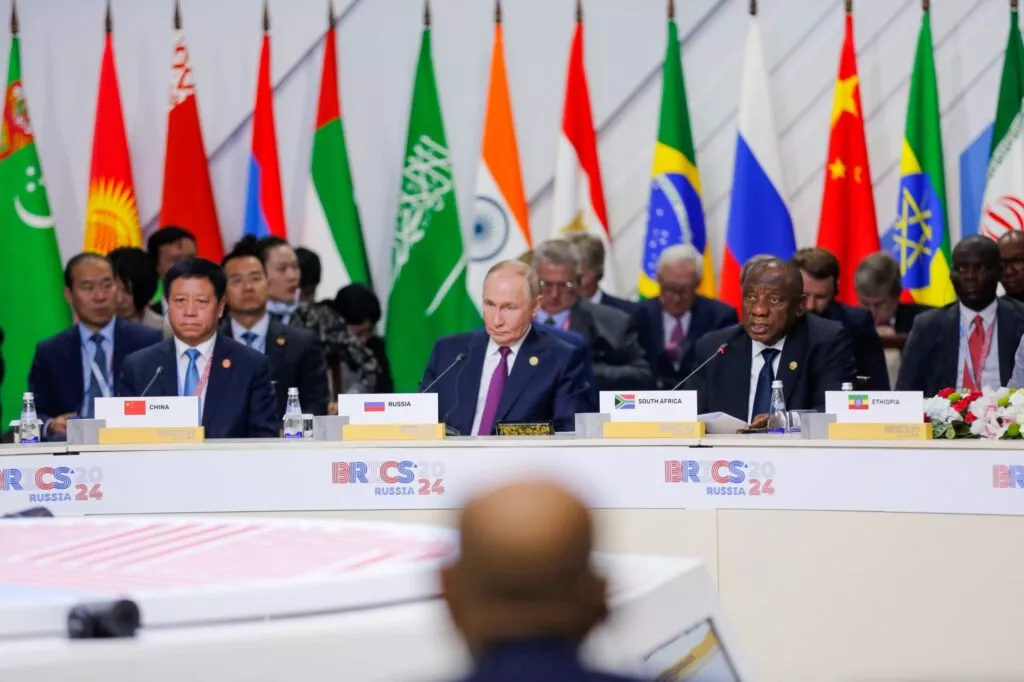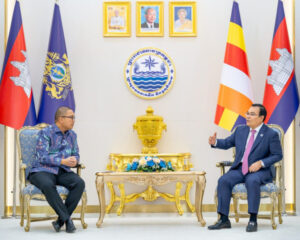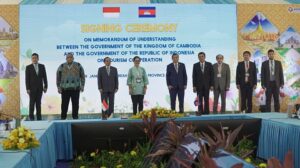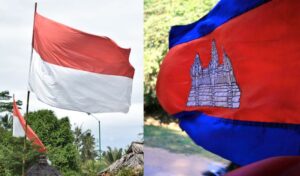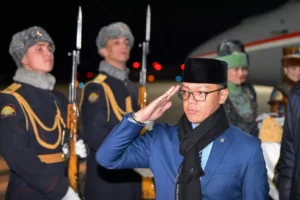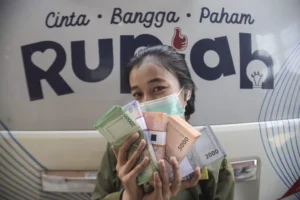Indonesia’s bold step into BRICS and beyond
Indonesia’s landmark entry into BRICS marks a strategic pivot in its diplomatic journey, offering access to the New Development Bank, alternative economic systems and partnerships in energy transition, food security and technology transfer. While presenting opportunities for infrastructure development and market diversification, this membership requires careful balance with existing alliances and enhanced institutional capacity. The move reinforces Indonesia’s role as a Global South advocate while advancing its domestic priorities.
Indonesia’s decision to join BRICS marks a new chapter in its diplomacy. Brazil, as the current BRICS Chair, announced Indonesia’s BRICS membership effective January 2025. This decision was undoubtedly accelerated, with all BRICS member countries agreeing to Indonesia’s inclusion in less than three months.
The process of Indonesia’s acceptance as a full-fledged BRICS member is more than symbolic. It signifies recognition of Indonesia’s strategic position as an advocate for the Global South and an important partner in fostering a more inclusive global governance framework. Through its BRICS membership, Indonesia strengthens its identity as part of a coalition committed to driving reform in international governance.
BRICS is important for Indonesia for several reasons. As a platform, BRICS offers more than just enhanced economic ties by providing a strategic avenue for pushing reforms in the global order, which is often perceived as unfair to developing countries. The United Nations and international financial institutions in particular have faced criticism for disproportionately serving the interests of developed nations. Through BRICS, Indonesia leverages its engagement with like-minded countries to address these imbalances.
BRICS also provides access to the New Development Bank (NDB) which was established as an alternative to traditional financial institutions. The NDB has already financed significant infrastructure and sustainable development projects in member states. This funding is crucial for Indonesia, which needs substantial resources to accelerate infrastructure development and the energy transition. With its focus on green energy projects, the NDB can help Indonesia reduce its reliance on traditional financial institutions that often impose restrictive conditions.
Indonesia’s BRICS membership also enhances the country’s role as a trusted development partner. By engaging the NDB and other BRICS frameworks, Indonesia can encourage more equitable co-finance development projects, particularly in the Global South. From an institutional perspective, the Indonesian Agency for International Development would benefit from access to new funding channels, best practices and coordination frameworks, allowing Indonesia to structure its aid more strategically and effectively. By harnessing its expertise in disaster resilience, agriculture and digital transformation, Indonesia can further strengthen its role as a key driver of sustainable development within BRICS.
BRICS membership also enables Indonesia to contribute to an alternative economic system. BRICS has emphasised the importance of developing alternatives to traditional currencies in international trade. With its experience in promoting local currency transaction schemes and cross-border digital payment systems, Indonesia can share best practices to strengthen the global financial architecture.
Indonesia can also leverage BRICS to accelerate its energy transition through green technology collaboration. BRICS’ focus on hydrogen and carbon capture, utilisation and storage technology aligns with Indonesia’s needs to achieve its net zero target. Through BRICS, Indonesia can advocate for innovative financing for renewable energy, which has always been central to Indonesia’s Just Energy Transition Partnership initiative.
In terms of food security, BRICS offers collaboration opportunities in agricultural technology and policy innovation. Capitalising on these opportunities would allow Indonesia to enhance productivity and efficiency in its agricultural sector, supporting President Prabowo Subianto’s priority of achieving national food self-sufficiency while contributing to global hunger alleviation efforts.
Export market diversification also presents a significant opportunity for Indonesia. Strategic collaboration with BRICS members such as Brazil in agriculture, India in technology and China in manufacturing can open new markets for Indonesian products. These partnerships would facilitate technology transfer and innovation to improve the competitiveness of national products.
While BRICS membership offers immense potential, it is not without its challenges. Indonesia must carefully balance its commitments to BRICS with its existing partnerships, particularly in relation to ASEAN and Western countries. Emphasising complementarity rather than competition will be essential to managing these relationships effectively.
Internally, Indonesia must enhance its institutional capacity to engage in technical and policy-level discussions within BRICS. Coordinating across government agencies and fostering collaboration with the private sector and civil society will be key to ensuring that Indonesia’s participation delivers tangible benefits. To this end, Indonesia’s appointment of a BRICS Sherpa with extensive experience and expertise in multilateral affairs will be essential.
In parallel, raising domestic awareness about BRICS’ benefits will ensure public support for Indonesia’s participation in the bloc. Transparent communication about how membership aligns with national interests will be crucial.
As a key player in the G20, ASEAN and APEC, Indonesia must carefully assess the strategic trade-offs of expanding its multilateral engagements. Deepening ties with BRICS should not come at the expense of diluting Indonesia’s influence in existing forums. Instead, Indonesia must ensure that BRICS’s full membership reinforces, rather than competes with, Indonesia’s broader foreign policy objectives, maximizing strategic leverage while maintaining policy coherence.
This is why Indonesia must maintain a vision of collaboration and transformation. BRICS provides an opportunity for Indonesia to align its domestic priorities, such as food, energy self-sufficiency and human capital development, with the bloc’s broader goals. By contributing to these efforts, Indonesia can become a catalyst for positive change within the Global South.
This new chapter in Indonesia’s foreign policy signals the country’s growing confidence on the world stage and its commitment to fostering a more inclusive and equitable global order. Through BRICS, Indonesia has the opportunity to strengthen its role as a global bridge builder and Global South advocate, while actively contributing to shaping a just international order.
Pandu Utama Manggala is an Indonesian Diplomat at the Ministry of Foreign Affairs, the Republic of Indonesia.
The views expressed in this article are the author’s own and do not represent the views of their employer.
Source: Eastasiaforum

